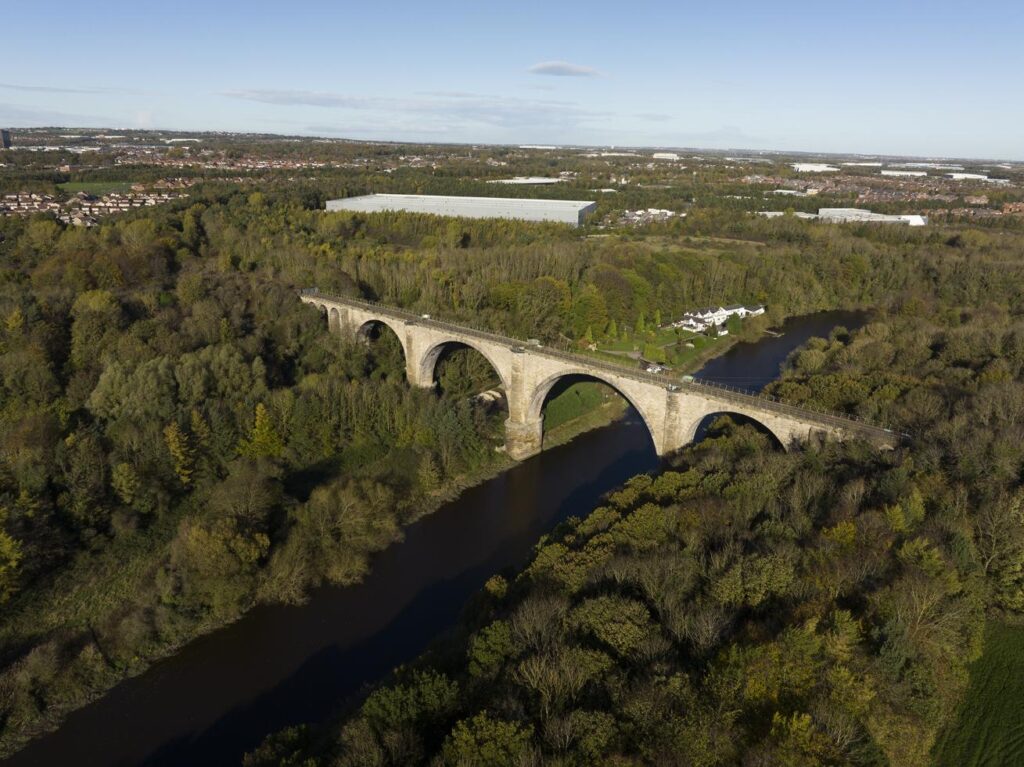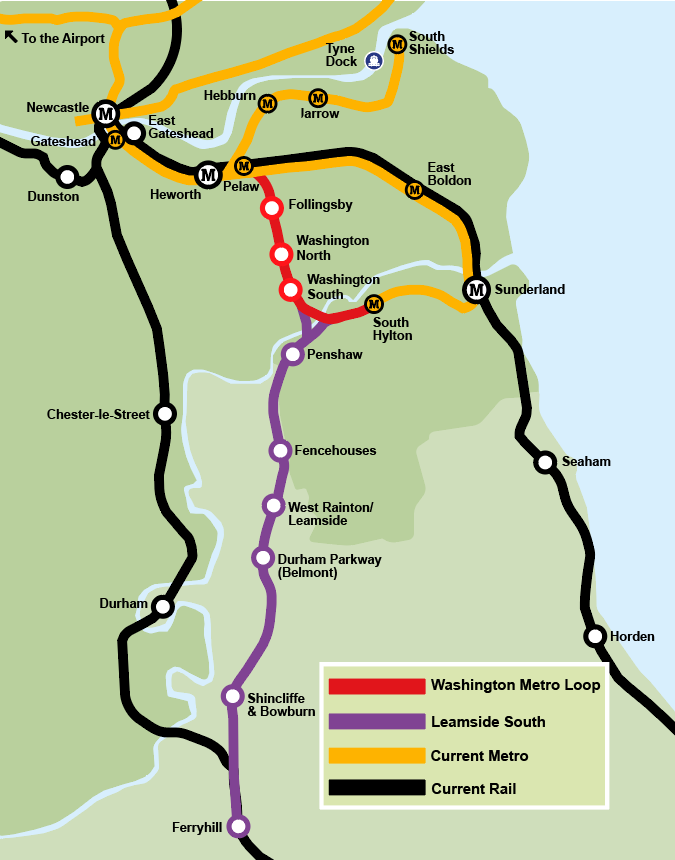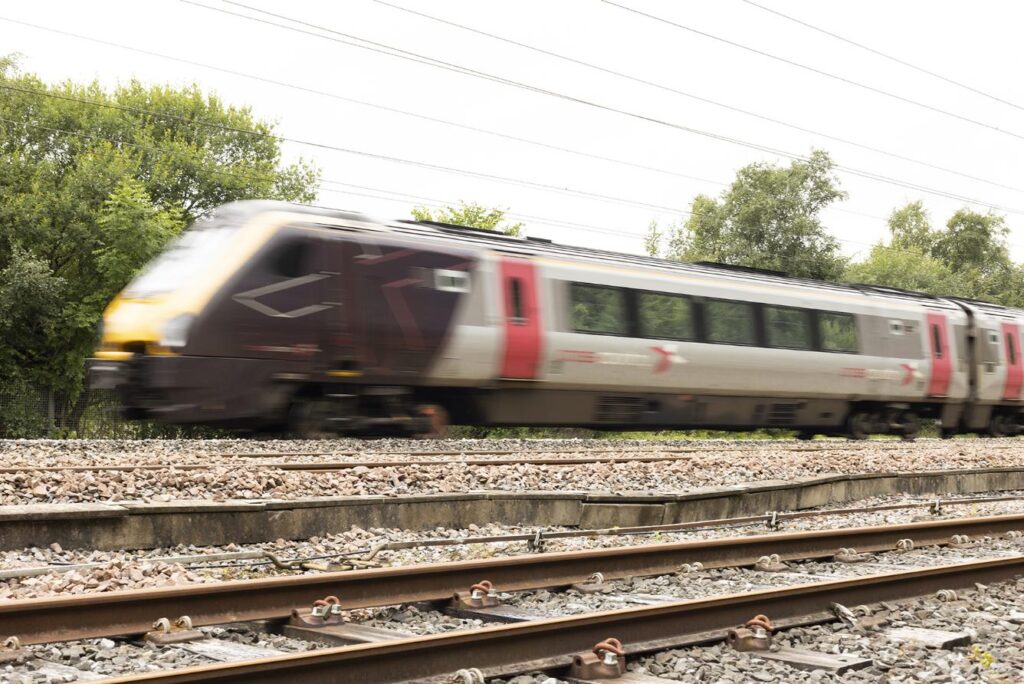
There is a lot said about the Leamside Line, especially after it was caught up in the Government’s Network North announcement in October last year.
Yesterday (March 5) it was announced that the North East has been awarded funding which will be used to develop a new business case for the south end of the railway line. Great news and a positive step forward — but what is the Leamside Line and why is it so important?
The Leamside Line is a 21-mile stretch of railway which runs from Pelaw in Gateshead to Ferryhill in County Durham. Once a thriving passenger and freight line, it was closed to passenger services in the 1960s under the Beeching cuts and then to freight in the 1990s.
It is regarded as the most important piece of transport infrastructure for the economic future of the North East. For too long the transport infrastructure in our region has been neglected and underfunded, placing people from across our great region at a significant disadvantage, and depriving our local communities of access to opportunity.
The Leamside Line offers critical connections — both for passengers and freight — to towns and communities across the region and the country, helping to drive economic growth using existing protected infrastructure. The line could be used to divert slow moving freight trains off the congested East Coast Main Line (ECML) which runs in parallel, therefore providing a major national connectivity boost and removing the long-standing bottleneck on this vital connection.
The ECML currently only supports six trains an hour, which is greatly outstripped by the demand. Reopening the Leamside Line would take pressure off the ECML and allow additional services to run, not only benefiting communities in the North East, but delivering wider national impact.

Investing in Leamside is a cost-effective option. The cost of upgrading the existing infrastructure of the old line is arguably a lot cheaper than starting from scratch and building a completely new line.
It is the missing connection between recent Government investment in the north and south of the region and would connect South East Northumberland to Washington, Durham and Teesside in a way that hasn’t been seen for generations. Critically it could multiply the Government’s investment in the Northumberland Line and in the new Ferryhill station and Stillington line from Durham to Teesside, whilst also enhancing and improving national connections and investment between London and Scotland.
One in five people in the North of England are at risk of social exclusion because of poor transport infrastructure. Many, including those in the wider parts of County Durham and in Washington, rely on a car to get to and from work, or to travel to the shops to see friends and family.
- Read more: North East green hotspots revealed
- Read more: All roads lead to London
As the cost of living increases, and real-time wages fall, having to pay for a car to get to and from work is the only option for some. It is imperative that we provide the people in our region with effective, sustainable transport solutions to improve social mobility, grow our economy and grow our communities.
A core part of the Leamside Line is the Washington Metro Loop — a new Metro connection from Pelaw to South Hylton via Washington, with new stations proposed in Follingsby, Washington North and Washington South. Transport North East recently submitted the strategic outline business case to the Government for this new line, which directly links to the work already underway with the development of the new Ferryhill station in County Durham.

The benefits of the Washington Metro Loop alone are astounding. The investment would pay for itself in under nine years, with an additional £90 million per year in economic benefits to the region.
The new Metro Loop would also create eight million additional passenger journeys per year and reduce annual carbon emissions by nearly 87,000 tonnes by replacing 1.7 million car journeys providing life-changing opportunities in a way that makes economic sense.
The overall greatest benefit comes from enhancing connections between our communities that are currently without rail links. Washington — the fourth largest town in the UK without a rail connection — would have direct access to Newcastle and Sunderland for the first time in decades. Many have argued that it is fundamentally wrong that a town with a population of just under 70,000 people which is located so close to some of the region’s biggest employers such as Amazon and Nissan, doesn’t have a rail connection.
With the development of the Washington Metro Loop, residents would have rail access to Newcastle International Airport, to South Shields and be able to travel to Sunderland city centre. This is a game-changer for both employers and residents, as businesses will gain access to between an estimated 13,000 and 38,000 new workers.

It would provide businesses and people with links to important regional centres of productivity, like the International Advanced Manufacturing Park (IAMP) and Follingsby Park, ensuring that our growing industries have the workforce they need to thrive.
But the Leamside Line is not just designed to benefit local passenger journeys. An enhanced freight service will offer businesses across the region more opportunities to transport their goods, with local manufacturers able to take advantage of the enhanced freight capabilities to distribute their products and showcase great northern manufacturing on a national stage more effectively.
It is welcome news that the Government yesterday granted funding which will be used to progress a business case for the south end of the line. But we need further commitments and action.
The Leamside Line is of huge importance to the North East. But it is also of huge strategic importance to the country, allowing more passenger journeys on the main rail link between Aberdeen and London.
The Government needs to recognise this when making decisions about how to spend those HS2 savings.

We could soon be living in houses built from fungi. Find out more in Life’s Science Now! Hub. CLICK HERE










